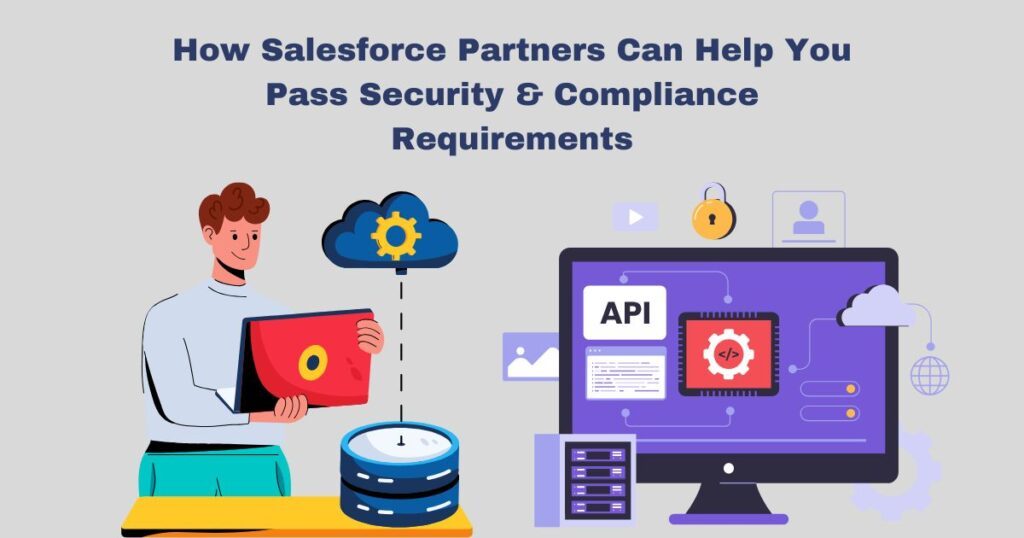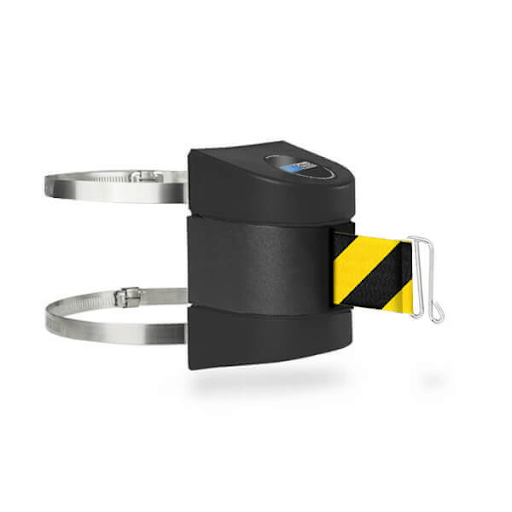Salesforce is one of the most widely used cloud-based platforms for customer relationship management (CRM), offering robust solutions to businesses of all sizes. However, as organizations store and process vast amounts of customer data on Salesforce, security and compliance become critical concerns. Achieving compliance with industry regulations and Salesforce security best practices is not always straightforward, especially for businesses operating in highly regulated industries such as finance, healthcare, and government.
This is where Salesforce partners play a crucial role. Salesforce consulting and implementation partners help businesses navigate the complexities of security frameworks, data protection laws, and compliance requirements. By leveraging their expertise, companies can ensure that their Salesforce environment is secure, properly configured, and fully compliant with the necessary regulations.
Understanding Security & Compliance in Salesforce
Security and compliance in Salesforce involve a combination of technical configurations, policy adherence, and industry best practices. Some of the critical aspects include:
- Data Security – Protecting sensitive customer data through encryption, access controls, and secure sharing policies.
- User Authentication & Access Management – Implementing Multi-Factor Authentication (MFA), Single Sign-On (SSO), and Role-Based Access Control (RBAC).
- Regulatory Compliance – Meeting industry-specific standards such as GDPR, HIPAA, SOC 2, PCI DSS, and ISO 27001.
- Audit & Monitoring – Ensuring continuous tracking of user activities, security breaches, and data modifications.
- Integration Security – Safeguarding third-party integrations and API connections from vulnerabilities.
- Data Backup & Recovery – Establishing reliable backup and disaster recovery plans to prevent data loss.
A certified Salesforce partner brings deep expertise in these areas, helping businesses build a security and compliance strategy that aligns with both Salesforce guidelines and industry regulations.
How Salesforce Partners Assist in Achieving Security & Compliance
1. Conducting Security Audits & Assessments
Salesforce partners perform in-depth security assessments to evaluate an organization’s Salesforce environment against best practices and compliance standards. This includes:
- Identifying vulnerabilities and gaps in existing security configurations.
- Reviewing user access and authentication mechanisms.
- Assessing API and third-party integrations for security risks.
- Conducting penetration testing and risk assessments.
The insights gained from these audits help businesses address weaknesses before they become security threats.
2. Implementing Data Protection Measures
One of the most critical aspects of compliance is ensuring the protection of sensitive data. Salesforce partners help businesses implement:
- Data encryption – Encrypting data at rest and in transit to safeguard it from unauthorized access.
- Field-Level Security (FLS) and Object-Level Security (OLS) – Restricting access to sensitive fields and records based on user roles.
- Shield Platform Encryption – Enabling advanced encryption solutions for businesses with strict compliance needs.
- Data Masking – Masking sensitive data to prevent exposure in non-production environments.
By applying these security measures, businesses can prevent data breaches and meet regulatory requirements effectively.
3. Configuring Role-Based Access Control (RBAC)
Misconfigured user access is a common security risk in Salesforce. A Salesforce partner ensures that:
- Users have appropriate permissions based on their roles and responsibilities.
- Least privilege access is enforced to prevent unnecessary data exposure.
- Profiles, permission sets, and sharing rules are optimized for security.
- MFA and SSO are configured to strengthen user authentication.
Properly configuring RBAC minimizes the risk of unauthorized access to sensitive data and improves overall system security.
4. Ensuring Compliance with Industry Regulations
Salesforce partners help businesses align with regulatory frameworks by:
- Mapping security configurations to industry-specific compliance requirements.
- Implementing automated compliance tracking and reporting tools.
- Providing pre-built compliance templates and best practices for industries like healthcare (HIPAA), finance (PCI DSS, SOX), and government (FedRAMP).
- Enabling audit logs and event monitoring for continuous compliance validation.
By leveraging their knowledge of regulatory requirements, Salesforce partners ensure that businesses remain compliant and avoid potential legal and financial penalties.
5. Enabling Secure Integrations & API Management
Integrating Salesforce with third-party applications is common, but improper configurations can expose sensitive data. Salesforce partners assist by:
- Implementing OAuth and secure API authentication to prevent unauthorized access.
- Configuring IP whitelisting and network restrictions for integration security.
- Conducting security reviews for connected applications.
- Monitoring API usage and identifying potential vulnerabilities.
By securing integrations, businesses can ensure seamless data exchange without compromising security.
6. Establishing Data Backup & Disaster Recovery Plans
Compliance standards often require businesses to have a data backup and recovery strategy. Salesforce partners help organizations:
- Set up automated backup solutions to protect against accidental deletions or data corruption.
- Define data retention policies in line with compliance requirements.
- Implement disaster recovery procedures for quick data restoration.
- Utilize Salesforce-native solutions like Salesforce Backup & Restore or third-party backup services.
A well-defined backup strategy ensures business continuity and minimizes downtime during unexpected incidents.
7. Providing Continuous Monitoring & Security Training
Security and compliance are ongoing processes that require constant monitoring and improvement. Salesforce partners provide:
- Security monitoring tools to track user activities and detect anomalies.
- Regular compliance audits to ensure businesses remain up-to-date with new regulations.
- Employee security training to educate staff on best practices for data protection and compliance.
- Incident response planning to prepare for potential security breaches.
Continuous monitoring and proactive security training help businesses stay ahead of potential threats and maintain compliance.
Conclusion
Achieving security and compliance in Salesforce requires a deep understanding of technical configurations, regulatory standards, and ongoing risk management. Salesforce partners bring specialized expertise to help businesses implement robust security frameworks, conduct compliance audits, and ensure regulatory adherence. By working with an experienced Salesforce partner, organizations can safeguard their data, minimize security risks, and confidently navigate the complexities of compliance requirements.
Related Blog – Navigating the Salesforce Partner Ecosystem: Types and Benefits












